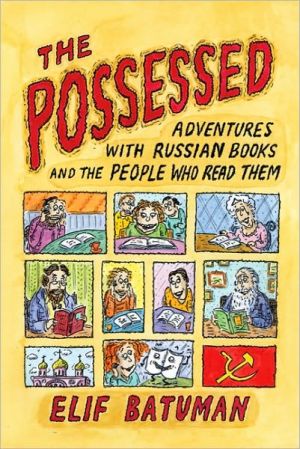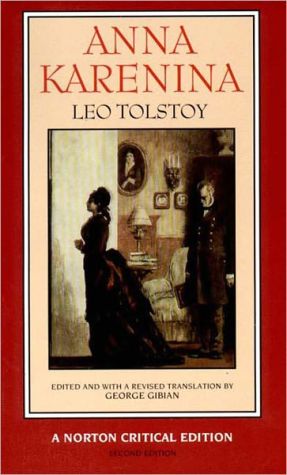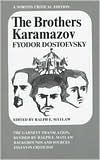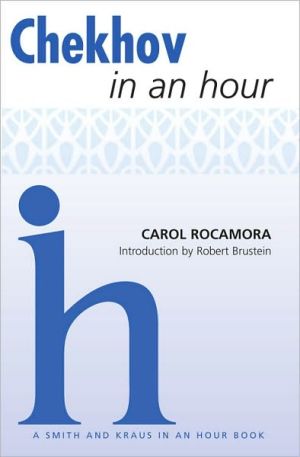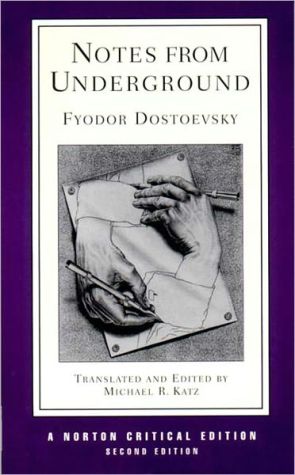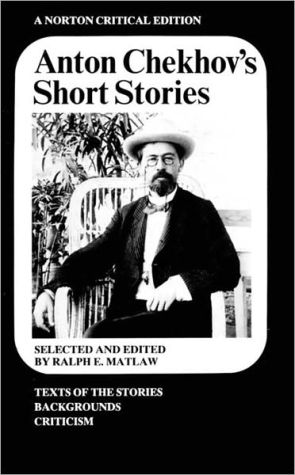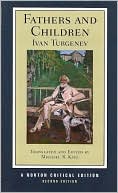Dostoevsky's Unfinished Journey
How does Dostoevsky’s fiction illuminate questions that are important to us today? What does the author have to say about memory and invention, the nature of evidence, and why we read? How did his readings of such writers as Rousseau, Maturin, and Dickens filter into his own novelistic consciousness? And what happens to a novel like Crime and Punishment when it is the subject of a classroom discussion or a conversation? In this original and wide-ranging book, Dostoevsky scholar Robin Feuer...
Search in google:
How does Dostoevsky’s fiction illuminate questions that are important to us today? What does the author have to say about memory and invention, the nature of evidence, and why we read? How did his readings of such writers as Rousseau, Maturin, and Dickens filter into his own novelistic consciousness? And what happens to a novel like Crime and Punishment when it is the subject of a classroom discussion or a conversation? In this original and wide-ranging book, Dostoevsky scholar Robin Feuer Miller approaches the author’s major works from a variety of angles and offers a new set of keys to understanding Dostoevsky’s world. Taking Dostoevsky’s own conversion as her point of departure, Miller explores themes of conversion and healing in his fiction, where spiritual and artistic transfigurations abound. She also addresses questions of literary influence, intertextuality, and the potency of what the author termed “ideas in the air.” For readers new to Dostoevsky’s writings as well as those deeply familiar with them, Miller offers lucid insights into his works and into their continuing power to engage readers in our own times.
Dostoevsky's Unfinished Journey \ \ By ROBIN FEUER MILLER \ Yale University Press \ Copyright © 2007 Robin Feuer Miller\ All right reserved.\ ISBN: 978-0-300-12015-8 \ \ \ \ \ Chapter One \ Conversion, Message, Medium, Transformation: Dostoevsky and the Peasants The truth must dazzle gradually. -Emily Dickinson He averted his eyes that he might see. -Charles Robert Maturin, Melmoth the Wanderer \ This first chapter, unlike the rest of this book, does not examine Dostoevsky's fiction. Readers, I hope, will cast an occasional backward glance at the aspects of Dostoevsky's biography and journalism brought up here. This chapter forms a kind of background or underpinning. Dostoevsky's response to the conditions and the very existence of the vast number of Russian peasants (the narod) pervades his biography, his journalism, his writings about literature and art, and his creative work. How much can we know about Dostoevsky's personal experience of a conversion? What was the nature of that conversion, and what role did his interactions with the peasants and his ideas about them play in shaping it? How did Dostoevsky's pragmatic ideas about the need to educate the peasantry combine with his lofty and fervently held ideas about art? How do his views on painting inform his ideas about art in a larger context? If one uses the figure of the peasant as a general example, how can we speculate about the nature of the gap between Dostoevsky's voice as a journalist and his voice as the implied author in his fiction?\ Whether we consider Dostoevsky the man, Dostoevsky the political journalist, Dostoevsky the religious thinker, or Dostoevsky the creative artist, the peasant-or as Russians of the nineteenth century so often liked to put it, "the problem of the peasant"-constitutes a vital thread that weaves itself into virtually every aspect of his oeuvre. Indeed, every Russian writer of the nineteenth century, with the possible exception of Anton Chekhov, found it necessary to come to terms, both as an artist and as a human being, with the peasant, whose dire situation-whether as enslaved serf or, after 1861, as supposedly "free man"-demanded both recognition and consideration. Moreover, although frequently mistreated and abused in the flesh, the peasant in his symbolic or collective form was, as one critic has put it, "the repository of some mysterious virtue, defying analysis," who was, in addition, "designated by the potent emotional word narod, which can also mean 'people' or 'nation.'"\ It is, of course, precisely such divisions and conflicts between the educated Russian's views of the peasant in fact and in theory that contributed to the ongoing nature of "the peasant problem." On one hand, the peasant was despised (a frequent adjective used to describe him was "drunken"); on the other hand, he was held up as the embodiment of Russian virtues and as some ineluctable synthesis of the best of Russia's past and the course of her future. Dostoevsky's views on the peasant reflected all these messy contradictions.\ What an irony it is, then, that the great age of the novel in Russia of the nineteenth century does not include a "single significant novel of peasant life." Yet a personal coming to terms with the peasant is crucial to many of the most important heroes of Russian fiction, among them Ivan Turgenev's Arkady Kirsanov and Bazarov, Leo Tolstoy's Pierre Bezukhov and Konstantin Levin, Dostoevsky's Raskolnikov, and Alyosha, Mitya, and Ivan Karamazov, to name only a few. That is, the peasant frequently becomes a term or a way station in the ongoing process of self-discovery of the nonpeasant hero (although Dostoevsky's peasants never give his heroes the kind of specific, concise, almost formulaic insight that Platon Karataev or the peasant Plato give to Pierre Bezukhov or Konstantin Levin).\ What is even more interesting is the way in which the figure of the peasant in Dostoevsky's nonfictional writings differs from its representations in his artistic work. My interest lies not in what Dostoevsky believed would happen to the peasants, practically, or should be done about them (his attitude toward reforms) but rather in this fissure between representations of the peasant in his nonfiction versus in his fiction. Dostoevsky's deliberate, programmatic, intentional use of the peasant in his art-the peasant transformed by art-becomes a difficult text that the nonpeasant hero must, in order to grow, decipher. For the figure of the peasant is, throughout Dostoevsky's artistic canon, intimately bound up with his most cherished ideas about visionary experience, memory, salvation, and grace-that is, his ideas about transformation and conversion.\ Dostoevsky's Conversion: What Was It? When Did It Occur? How Were the Peasants Important to It? Certain key elements of Dostoevsky's life were directly shaped by his views on the peasants. His controversial early involvement in the politically radical Petrashevsky Circle, for which he was imprisoned in the Peter and Paul Fortress in St. Petersburg, in 1849, and then sent to a prison camp in Siberia, was linked to his concern over the situation of the peasants. Joseph Frank has stated categorically that "Dostoevsky had become a revolutionary only to abolish serfdom and only after the seeming dissolution of all hope that it would be ended, to quote Pushkin, 'by the hand of the Tsar.'"\ There is another biographical fact to consider as well: Dostoevsky probably believed that his father had been brutally murdered by his serfs. He certainly heard the prevalent rumors about this crime. Yet we, even armed as we are with the critic's arsenal of hindsight, have no reliable way to measure the overwhelming import of this possible occurrence. Dostoevsky himself never directly referred to this event or to its effect on him, Freud's theoretical writings about Dostoevsky notwithstanding. What does this silence mean, especially when juxtaposed to his preoccupations with murder and parricide in his fiction? At the center of Dostoevsky's life, we encounter a highly dramatic event about which he remained silent. He may well even have felt implicated in his father's death, for his frequent requests for money had likely contributed to the cruel demands his father had made on his serfs, serfs of whom the child Dostoevsky had been very fond. Yet the rumors that his father had been murdered also remained a topic that Dostoevsky would never directly approach, despite his artistic preoccupation with murder, with the representation of peasant murderers, and with parricide.\ The rumors about his father's murder may well have been the driving force -the psychological reason-behind Dostoevsky's subsequent lifelong and passionate focus on the plight of the narod. Frank has suggested that the sudden death and possible murder of his father became a catalyst for focusing Dostoevsky's intellectual and creative energy on the peasant. He argues convincingly for this possibility: "The existence of serfdom had now become literally unbearable for him, because he could never free himself from the sickening feeling, that in helping to foment its worst excesses, he had brought on his father's death. Only through the abolition of serfdom ... could the trauma of his guilt be assuaged." Whether or not his father was murdered, the existence of the rumors would have effectively served to underline his father's severity with his serfs. Such severity toward peasants of whom Dostoevsky had been fond, even without a subsequent murder, could have worked powerfully to awaken his sense of social and political injustice and to inspire his profound compassion and concern for the peasants.\ Just as the peasant problem gave Dostoevsky the initial impetus for his fateful foray into radical politics, so too did Dostoevsky's core beliefs about the peasants inform his famous conversion. What was the nature of this conversion? Was it spiritual or ideological? Dostoevsky's own conversion, like his fictional representations of the conversion experience, is fraught with mystery and paradox. It is difficult to determine just when this conversion actually occurred, although it is possible, in a general sense, to describe the actual change in Dostoevsky's outlook upon his return from prison and exile. The young man sentenced to death for his radical activities who then served ten years as a convict in Siberia and as an exiled soldier in the ranks returned to St. Petersburg a religious, conservative supporter of the tsar and of Russian Orthodoxy. Frank attributes to Dostoevsky (and I agree with him) a genuine conversion experience, true to the American philosopher and psychologist William James's analysis of such a momentous human event, in which, though no outer circumstances changed, the meaning of them did.\ Dostoevsky's conversion may not initially have been a particularly religious one with a classic sudden turning toward God but rather may have involved his turning to the peasant convicts, who represented to him all the negative aspects of the narod in stark relief. His turning toward the people was the necessary step in his eventual fully realized embrace of Russian Orthodoxy. In prison Dostoevsky experienced a range of largely negative responses to the peasants he encountered, but he nevertheless discovered within these same peasants the bedrock of hope for himself and for Russia. Frank puts it in the following way: "Such a metamorphosis indubitably took place for Dostoevsky, who, while refusing to gloss over for an instant the manifest harshness, brutality, and backwardness of Russian peasant life, nonetheless became convinced that at its center were preserved the sublime Christian virtues of love and self-sacrifice." But can we really know where or when this transformation or conversion took place? I suggest that it occurred before Dostoevsky ever reached Siberia.\ It is usual to emphasize that it was during his years as a convict that Dostoevsky underwent the conversion in which he discovered the greatness and beauty of the Russian people and after which he passionately embraced Russian Orthodox belief. Upon his departure from Siberia in 1854 and before he headed into exile in Semipalatinsk, he wrote, in a memorable and deeply felt letter, to the Decembrist wife Madame Fonvizina. She had offered him comfort, wise counsel, and money on his journey as a convict in chains to Siberia some four years earlier. She had also given him a New Testament. He wrote to her of his spiritual condition, a condition that is most often understood as having arisen from his years amid the peasant convicts.\ And not because you are religious, but because I myself have experienced and felt it I shall tell you that at such a time one thirsts for faith as "the withered grass" thirsts for water, and one actually finds it, because in misfortune the truth shines through. I can tell you about myself that I am a child of this century, a child of doubt and disbelief, I have always been and shall ever be (that I know), until they close the lid of my coffin. What terrible torment this thirst to believe has cost me and is still costing me, and the stronger it becomes in my soul, the stronger are the arguments against it. And, despite all this, God sends me moments of great tranquility, moments during which I love and find I am loved by others; and it was during such a moment that I formed within myself a symbol of faith in which all is clear and sacred for me. This symbol is very simple, and here is what it is: to believe that there is nothing more beautiful, more profound, more sympathetic, more reasonable, more courageous, and more perfect than Christ, and there not only isn't, but I tell myself with a jealous love, there cannot be. More than that-if someone succeeded in proving to me that Christ was outside the truth, and if, indeed, the truth was outside Christ, I would sooner remain with Christ than with the truth. But it is better to stop talking about this. Why is it, though, that certain topics of conversation are completely banned in society and, if they are broached, someone or other gives the impression of being shocked? But let us leave that.\ Locating Dostoevsky's conversion experience as having occurred while he was in Siberia, however, becomes problematic and paradoxical when one takes into account that it lay at the end of a long road already paved with intention and conviction. He alludes in this letter to "particular moments of great tranquillity" and says, "it was during such a moment that I formed within myself a symbol of faith in which all is clear and sacred for me." When did that fundamental mental paradigm shift occur? He had determined to undergo such a conversion and may very likely have experienced this "particular moment" of cataclysmic tranquility before his penal servitude in Siberia had even begun. In fact, he had set off for prison in Siberia with the expressed intention of discovering humanity, in the form of the Russian people there. By the time he departed on his journey, he had already experienced an acute surge of love for life; he wished to immerse himself in it. At this juncture, however, God did not seem to be on his mind; the Russian people were, and his turning toward them was what led him toward his fervently held Christian belief.\ On 22 December 1849, only hours after having endured the horror of a mock execution, Dostoevsky had written to Mikhail, his beloved brother, about the prison sentence that had just, miraculously, replaced his sentence of death:\ Brother, I have not lost courage and I do not feel dispirited. Life is life everywhere; life is within ourselves and not in externals. There will be people around me, and to be a man among men, to remain so forever and not to lose hope and give up, however hard things may be-that is what life is, that is its purpose. I have come to realize this. This idea has now become part of my flesh and blood. Yes, this is the truth! The head that created, that lived by the superior life of art, that recognized and became used to the highest spiritual values, that head has already been lopped off my shoulders. What is left are the memories and the images that I had already created but had not yet given form to. They will lacerate and torment me now, it is true! But I have, inside me, the same heart, the same flesh and blood that can still love and suffer and pity and remember-and this, after all is life. On voit le soleil! ... Never before have such rich and healthy reserves of spiritual life been seething in me as now.... There is no bile or malice in my soul, and I should like so much, at this instant, to love and to press to my heart any of these former acquaintances [with whom he had quarreled]. It is a joy; I experienced it today as I was taking leave of those who were dear to me before I was to die.... Life is a gift, life is happiness, each minute could be an eternity of bliss.... Now, at this turning point in my life, I am being reborn in another form.\ Dostoevsky was to mine these insights for the rest of his life in both his journalism and his fiction. "To be a man among men," among the people; to give form to memories and ideas, to transform one into the other, to realize that each minute could be "an eternity of bliss" if only the gift of life were valued-these elements formed the bedrock of his conversion and his writing and were all present before he ever set out for Siberia.\ Two days later, just before his departure to prison, in bidding farewell to his brother and his friend, the school teacher and critic Alexander Miliukov, Dostoevsky again reiterated his intention of discovering humanity in prison. "I'm not going to my funeral; you're not seeing me off to the grave-and in penal servitude there aren't any wild beasts, but men, perhaps even better than I, perhaps more worthy than I."\ Both these passionate statements from December 1849 reflected Dostoevsky's predetermined plan of action, his intentional program for his prison years: the discovery of the Russian people. He had determined upon a conversion, an inner transformation, a rebirth, and perhaps-whether in the execution square, within the Peter and Paul Fortress, or somewhere on the St. Petersburg streets linking them-it had already occurred.\ (Continues...)\ \ \ \ \ Excerpted from Dostoevsky's Unfinished Journey by ROBIN FEUER MILLER Copyright © 2007 by Robin Feuer Miller. Excerpted by permission.\ All rights reserved. No part of this excerpt may be reproduced or reprinted without permission in writing from the publisher.\ Excerpts are provided by Dial-A-Book Inc. solely for the personal use of visitors to this web site. \ \
Contents Preface....................ixIntroduction....................xiii1 Conversion, Message, Medium, Transformation: Dostoevsky and the Peasants....................12 Guilt, Repentance, and the Pursuit of Art in The House of the Dead....................223 Crime and Punishment in the Classroom: The Elephant in the Garden....................444 The Gospel According to Dostoevsky: Paradox, Plot, and Parable....................685 Transformations, Exposures, and Intimations of Rousseau in The Possessed....................866 Unsealing the Generic Envelope and Deciphering "The Dream of a Ridiculous Man"....................1057 Evocations and Revocations of Anxiety in the Metaphysical Novel: Reading The Brothers Karamazov through the Lens of Melmoth the Wanderer....................1288 Perilous Journeys to Conversion: Adventures in Time and Space....................148Concluding Fragments: Some Last Words....................173Notes....................189Index....................231Illustrations follow page....................104
\ Christianity and Literature"[A] beautifully written study. . . . Miller''s deep understanding of Dostoevsky''s narrative strategies and of his double-edged psychology combined with her own poetic wisdom spark epiphanies in her readers."—Deborah A. Martinsen, Christianity and Literature\ — Deborah A. Martinsen\ \ \

